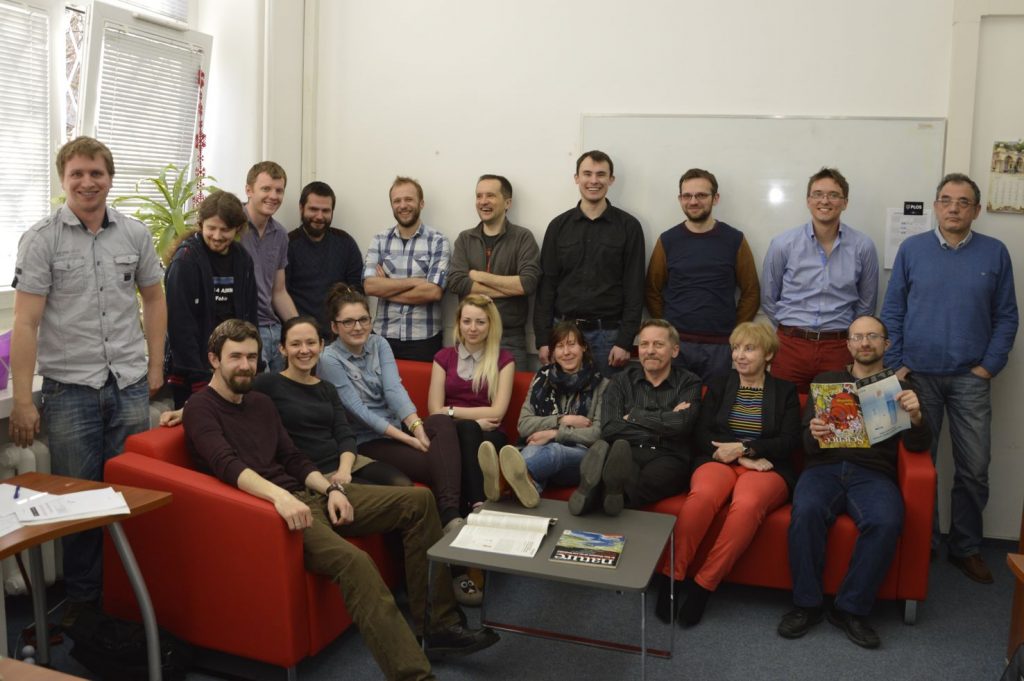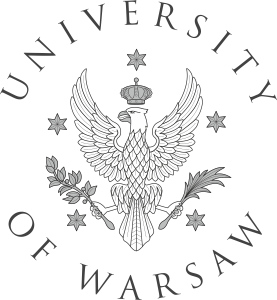Laboratory of Theory of Biopolymers
LABORATORY OF THEORY OF BIOPOLYMERS
Head of the laboratory:
Prof. dr hab. Andrzej Koliński
Professors and Associate Professors:
- Dr hab. Dominik Gront (http://www.bioshell.pl/)
- Dr hab. Sebastian Kmiecik
- Dr hab. Dorota Latek (http://dlatek.chem.uw.edu.pl/)
- Dr hab. Andrzej Sikorski
- Dr hab. Joanna Ida Sułkowska (http://jsulkowska.cent.uw.edu.pl/)
Other researchers:
- Dr Maksim Kouza
- Dr Mateusz Kurciński
- Dr Łukasz Wieteska
- Administration: Alicja Kurcińska
PhD Students:
- Mgr Aleksandra Dawid
- Mgr Aleksander Kuriata
- Mgr Paweł Dąbrowski-Tumański

Website address:
http://biocomp.chem.uw.edu.pl/
Research areas:
- coarse-grained modeling and multiscale modeling of proteins and their complexes
- prediction of protein structure: from comparative modeling to de novo folding
- simulations of protein dynamics
- prediction of protein interactions/ molecular docking
- bioinformatics and biological statistics
- computer aided drug design/ structure-based drug design
- modeling and predicting of biomacromolecular interactions: prediction of protein function
- development of software for molecular modeling and computational analysis of experimental data on biomacromolecules
More about our research: http://biocomp.chem.uw.edu.pl/research
Major scientific achievements:
Tools developed in our laboratory can be accessed at: http://biocomp.chem.uw.edu.pl/tools
List of our publications: http://biocomp.chem.uw.edu.pl/publications/82
Selected topics of Bachelor and Master theses:
The Laboratory of Theory of Biopolymers is currently looking for well-motivated students to join the team by taking part in one of our software projects. The students’ work may take form of a thesis (BSc or MSc), participation in a publication project or an internship.
LTB develops molecular modeling methods for proteins (structure prediction, dynamics simulations or modeling protein interactions). The tools we offer are well-recognized in the field and have a potential for commercialization in the pharmaceutical industry. In our work, we also apply a vast array of computational methods (modeling, bioinformatics, statistical) to aid the drug design and experimental data analysis. For commited candidates, we offer stipends and participation in scientific conferences. Further details and recent publications are available online on our website.
The tasks we have prepared for the newcomers include:
(1) development of modeling methods for protein interactions (protein-peptide, protein-protein) and their application for drug design
(2) application of existing modeling tools for prediction of structure, dynamics and functions of biomolecular systems
(3) development of a software package for analysis of modeling results
(4) development of a web interface for automatic simulation analysis
(5) development of text/data-mining methods to aid computational modeling
(6) development of tools for automated tests of our methods or other, more about our research can be found at: http://biocomp.chem.uw.edu.pl/research/
Major research projects and international cooperation:
MAESTRO project, funded by The National Science Centre.
The project title: „New and efficient methods for the flexible molecular docking of proteins”
Project period: 2015 – 2020
ERA-NET IB project, funded by the National Center for Research and Development
The project title: „Integrative Approach to Promote Hydroxylations with Novel P450 Enzymes for Industrial Processes”, 2014-2017

